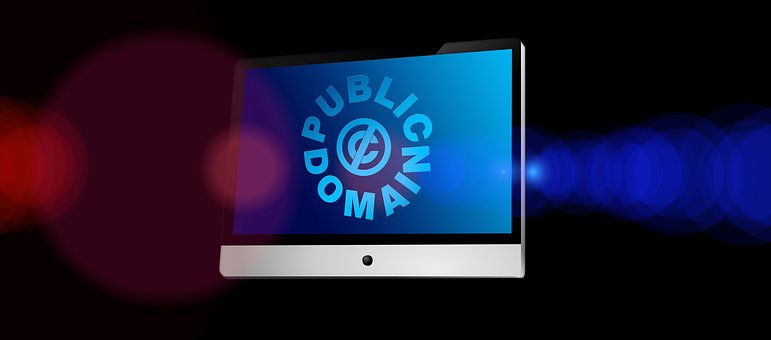Which sectors can benefit from the special tax regime?
The income concerned is income from the cession or concession of copyright and related rights, as well as legal or compulsory licences, referred to in Book XI of the Belgian Economic Law Code or in similar provisions of foreign law (hereafter “copyright”).
Copyright is the right to protect literary and artistic creations (f.ex. novels, paintings, sculptures,…) as well as software.
Following sectors can easily benefit from this special tax regime:
- Graphic designers
- Copywriters
- Illustrators
- Photographers
- Designers
- Journalists
- Editors
- Teachers/lecturers
- Architects
- Software developers
What is the real benefit of this special tax regime?
If a taxpayer receives income from the assignment or the concession of copyright and related rights, these are in principle taxable as movable income in accordance with article 17, §1, 5 ° BITC 1992.
The total amount of the copyright fee is legally capped at an amount of 37.500 euro (indexed amount for tax year 2020: 61.200,00 euro). If the copyrights are not used for professional activities, the income above the cap maintains their fiscal nature and is taxable at a separate rate of 15% (Article 171, 2bis of the Belgian Income Tax Code “BITC”). If the income does acquire a professional character, the amount above the cap is considered as professional income and is taxable at the progressive rate (Article 37 of the 1992 Belgian Income Tax Code
“BITC”).
The taxpayer can reduce the income obtained from the assignment or concession of copyright and related rights with costs. Either one chooses to prove his actual costs and deduct them or one chooses to apply the fixed costs deduction in accordance with Article 4 of the Royal Decree Implementing the BITC (“RD / BITC 1992”) (Article 22, §3 BITC 1992).
The taxable amount results from the deduction of a lump sum cost amount calculated as follows:
- 50% on the first 16.320.00 euro bracket;
- 25% on the bracket between 16.320.00 and 32.640,00 ;
- 0% above. (indexed amount for tax year 2020 – Article 4 RD / BITC 1992)
The maximum amount of costs that can be deducted is 12.240,00 euros for the 2020 tax year.
Example
Software developer, M. Windows, is shareholder of a management company X of which he also is director. X pays M. Windows an annual gross remuneration equal to 61.200,00 euro. The total cost of taxes and social contributions on this amount is calculated as follow:
|
Gross total amount |
61.200,00 |
| Social contributions |
12.456,96 |
| Total personal income tax
(federal/regional/municipal) |
18.823,52 |
| Net amount |
29.919,52 |
Now suppose that M. Windows pays the same amount as copyright fee.
Then the total cost of taxes and social contributions on this amount will be calculated as follow:
|
Gross total amount |
61.200,00 |
| Social contributions |
– |
| Total personal income tax
(15% withholding tax) |
7.344,00 |
| Net amount |
53.856,00 |
Thus, the total benefit for M. Windows in applying this tax regime will be 23.936,48 euro annually (53.856,00 – 29.919,52).
Do I have to fulfill some “paperwork” to benefit from this special tax regime?
Yes, you do.
The tax due (15%) must be withheld at source and paid directly to the Belgian tax authorities within 15 days of the payment (article 267 of the BITC and article 85 RD / BITC 1992).
Furthermore, all income from copyright must be mentioned in the personal income tax return, even though a withholding tax has been levied on it.
Are there any pitfalls in applying this tax regime?
Since the scope of the tax regime is quite large (see under A) the fiscal administration strictly check the correct application of the regime.
In the recent past, the ruling committee refused the application of the special tax regime for several sectors:
The ruling committee refused the application made by a notary who had developed an “Excel” program that allows to determine the cost of the various transactions in which a notary intervenes. According to the ruling committee such type of programs does not meet the originality condition to benefit from the copyright protection. The ruling committee also refused the application for portrait rights of soccer players, since portrait right are not protected under copyright. Also lawyers and accountants can not benefit from the special tax regime – according to the ruling committee – since their work does not meet the originality condition. Also, accessory services to software development, such as providing training, do not enjoy copyright protection and thus the remuneration for those services cannot benefit from the special tax regime. In case of “hybrid” services, a clear distinction has to be made both in the timesheets and in the invoicing between services that create copyrighted work and those that are not covered.
Therefore, before applying this regime, a thorough review must be made by an expert to determine if the services are protected by copyright.
Furthermore, although some belgian courts considered this to be illegal since it is not specifically required by the belgian tax law, the fiscal administration demands a written “copyright-agreement” between the author and the company.
Can I avoid the above mentioned pitfalls?
Yes, you can, by:
- having the services checked by an IP-expert for copyright protection
- drawing up a copyright-agreement that is in accordance with the IP rules and the tax rules
- applying for a ruling
The ruling committee uses a certain policy when assessing how the remuneration between a company and a manager must be determined for the exploitation of a work protected by copyright.
Furthermore, the ruling committee also requests an impact analysis as well in connection with the result of the company as with the current remuneration.
The impact analysis of the planned transaction on the result of the company verifies whether the granting of copyrights will not undermine the result of the company. Therefore an analysis of the profit before tax and the impact of the granting of copyright on this is necessary.
The impact analysis of the planned transaction on the current managerial remuneration of the manager must clearly show that the current managerial remuneration of the manager will not be reduced as a result.
How can Everest Law Firm help in applying for the special tax regime?
The lawyers of Everest law firm are all renowned experts in their different areas of expertise and have a large experience in the domain of the copyright tax regime. Therefore, we can help you in different ways:
- conformity check to determine whether the services are covered by copyright
- drawing up a copyright-agreement
- submitting a ruling request
Jonas HELAUT, Everest Tax
Jonas Helaut pratique principalement le droit fiscal, le droit commercial, le droit des sociétés, les acquisitions d’entreprises et le droit de l’insolvabilité, tant pour des services de consultation que pour la résolution des litiges. Jonas Helaut est membre de BATL (Belgian association of tax lawyers) et de BCFA (Belgian Corporate Finance Association).




0 commentaires